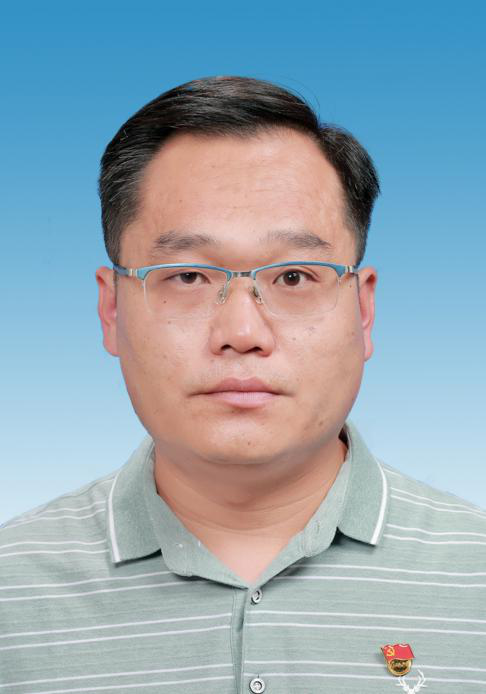
Thermal Physics课程简介:前往报名学习
Hello, everyone. We are the thermal teaching team of Xi 'an Jiaotong University. We are very glad to meet and know learners from all over the world. We are going to take you into the thermal world. Thermal physics is a discipline that studies heat phenomenon and its law. The phenomenon of heat is closely related to the development of our life and society, like the small thermometer, the gap in the road, or the big heat engine, rocket, shenzhou spaceship and so on. So we can say thermal phenomenon is almost
播放:80次,课程ID:4187259
Hello, everyone. We are the thermal teaching team of Xi 'an Jiaotong University. We are very glad to meet and know learners from all over the world. We are going to take you into the thermal world. Thermal physics is a discipline that studies heat phenomenon and its law. The phenomenon of heat is closely related to the development of our life and society, like the small thermometer, the gap in the road, or the big heat engine, rocket, shenzhou spaceship and so on. So we can say thermal phenomenon is almost
--1.0 Introduction
--1.1 The macroscopic description method and the microscopic one
--1.2 Thermodynamic systems and equilibrium states
--1.3 Temperature, empirical temperature scale
--1.4 Absolute temperature scale
--1.5 Equation of state
--1.6 A microscopic model of matter
--1.7 A microscopic model of an ideal gas
--1.8 A preliminary theory of microscopic description of an ideal gas
--1.9 The inter-molecular kinetic energy of real gas
--1.10 Van der Waals equation
--2.1 Molecular dynamics theory and statistical Physics
--2.2 The basics of probability theory
--2.3 Probability distribution function
--2.4 Molecular beam experiments
--2.5 Velocity space
--2.6 Maxwell rate distribution
--2.7 Three typical averages of molecular rates
--2.8 Maxwell velocity distribution
--2.9 Velocity component distribution and velocity distribution relative to the most probable rate
--2.10 The number of gas molecules hitting the wall from Maxwell velocity distribution and pressure fo
--2.11 Isothermal atmospheric pressure formula
--2.12 Boltzmann distribution
--2.13 The radial distribution of suspended particles in the rotating body and super-centrifugal techn
--2.14 Heat capacity and internal energy of a monatomic ideal gas
--2.15 Degrees of freedom and degrees of freedom
--2.16 Energy equipartition theorem
--2.17 Limitations of the equipartition theorem
--3.1 Macroscopic law of viscosity phenomena
--3.2 Macroscopic law of heat conduction phenomenon
--3.3 Macroscopic law of diffusion phenomenon
--3.4 The mean free path of a gas molecule
--3.5 The distribution of gas molecules in a free path
--3.6 Derivation of gas transport coefficient
--3.7 Thermal conductivity in rarefied gases
--4.1 Reversible and irreversible processes
--4.2 Work and heat
--4.3 The first law of thermodynamics
--4.4 The heat capacity and enthalpy
--4.5 Internal energy of ideal gases and Joule experiment
--4.6 The same-body, isobaric, and isothermal processes of an
--4.7 The adiabatic process for an ideal gas
--4.8 The multiparty process for an ideal gas
--4.9 Heat engine
--4.10 Refrigeration cycle
--4.11 Joule-Thomson experiment (throttling)
--5.1 Two statements and equivalence of the second law of thermodynamics
--5.2 Carnot theorem
--5.3 Clausius equation
--5.4 Clausius entropy and its calculation
--5.5 Principle of entropy increase
--5.6 The mathematical expression of the second law of thermodynamics
--5.7 Statistical significance of the second Law of thermodynamics
--5.8 The microscopic meaning of entropy
--6.1 Surface tension and surface energy
--6.2 Additional pressure at bending level
--6.3 Wetting and non-wetting and capillary phenomenon
--6.4 Gasification and condensation
--6.5 Real gas isotherm
--6.6 Van der Gas isotherm
--6.7 Solid liquid phase change, gas-solid phase change and phase diagram
--6.8 Clapeyron equation

方爱平,西安交通大学理学院副教授、担任全国高等学校热学课程教学研究会副理事长;陕西省《普通物理学 热学》线下一流课程负责人。长期从事大学物理课程和物理专业热学课程的主讲及教学研究工作;主持1项教指委教改项目、4项校级教改项目,参与国家、省部级教改项目 2 项;2019年获陕西省教学成果一等奖(排名第三)、2015年获陕西省教学成果一等奖(排名第五)、2018年获得第四届“高等教育杯”全国高等学校物理基础课程青年教师讲课比赛陕西赛区一等奖和西北赛区一等奖、2019年获西安交通大学授课竞赛一等奖。

保山学院工程技术学院副教授,主要讲授《大学物理》、《热力学统计物理》。获云南省五一劳动奖章、云南省职工业务技能状元、云南省优秀教师等荣誉称号。指导学生获国家级学科竞赛奖项14项。